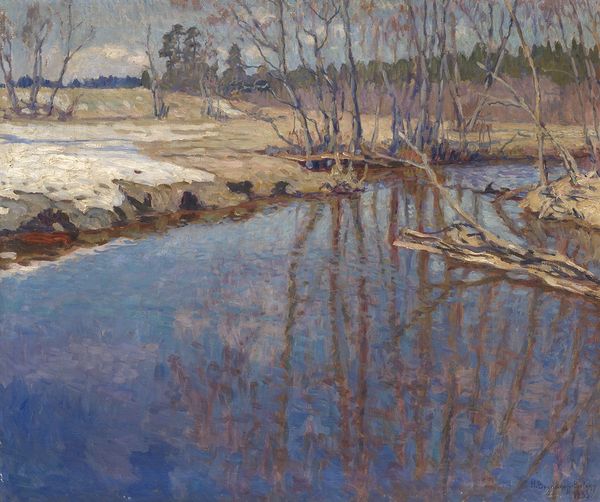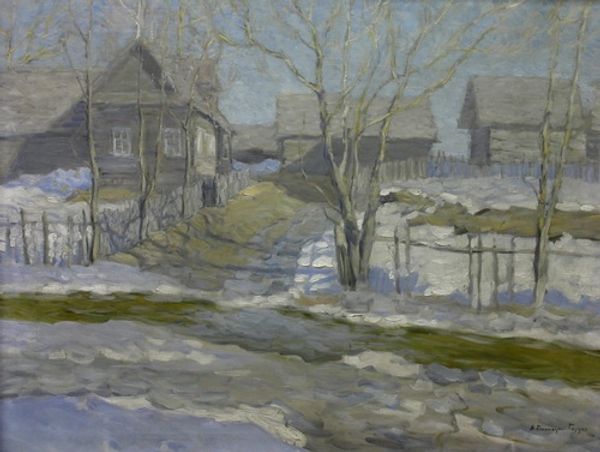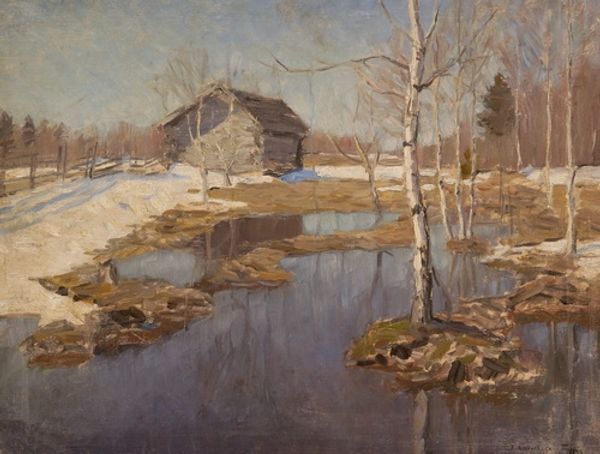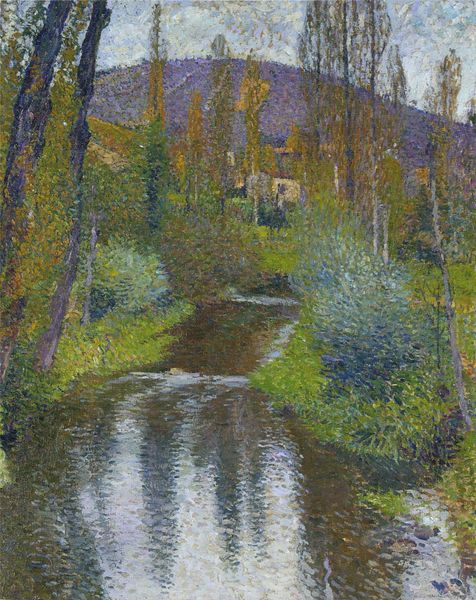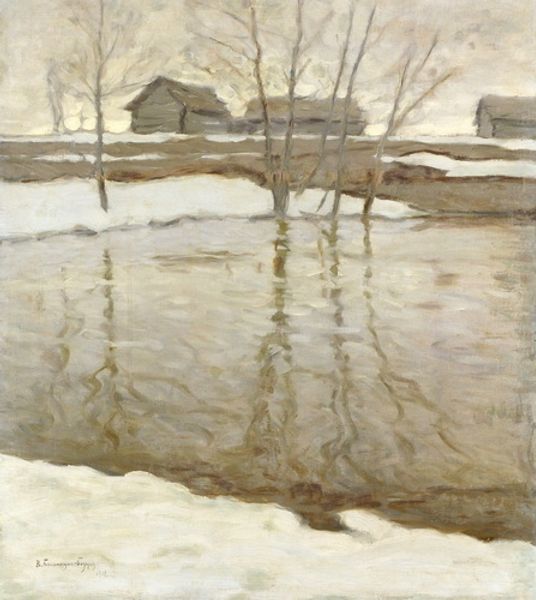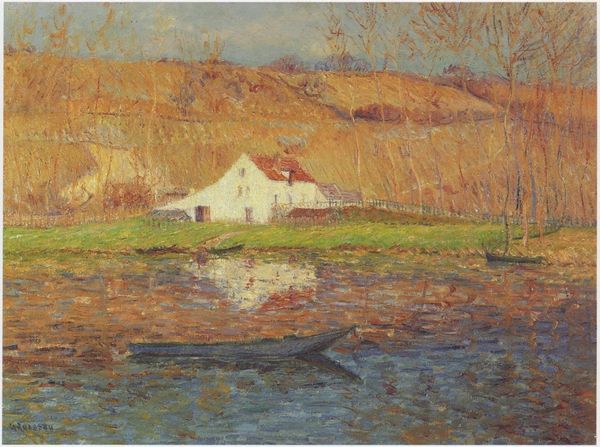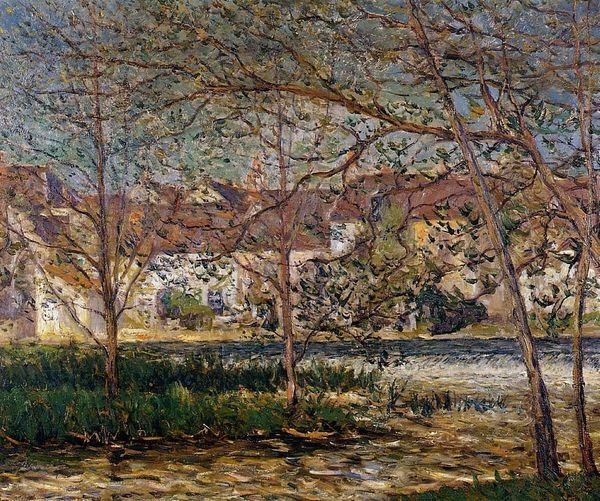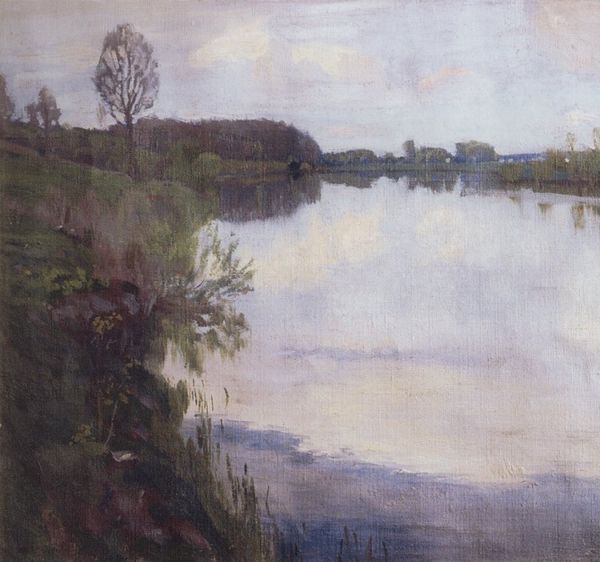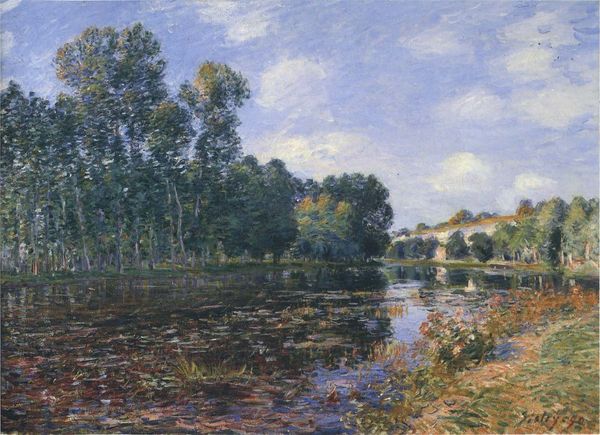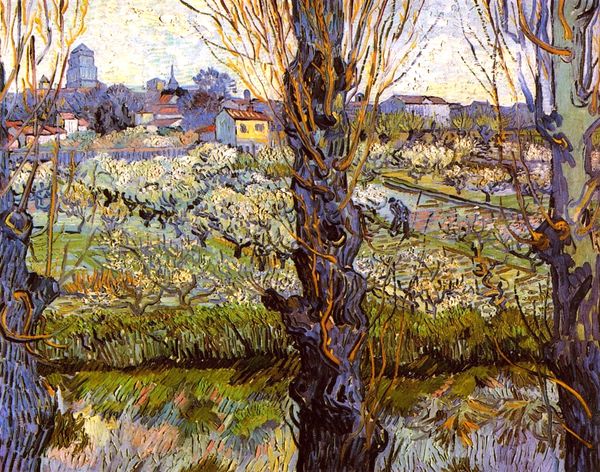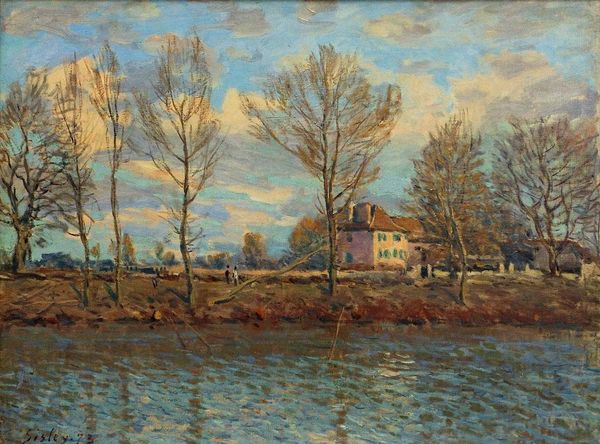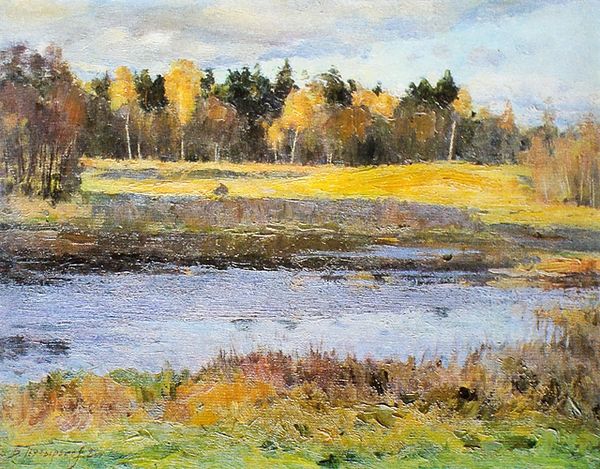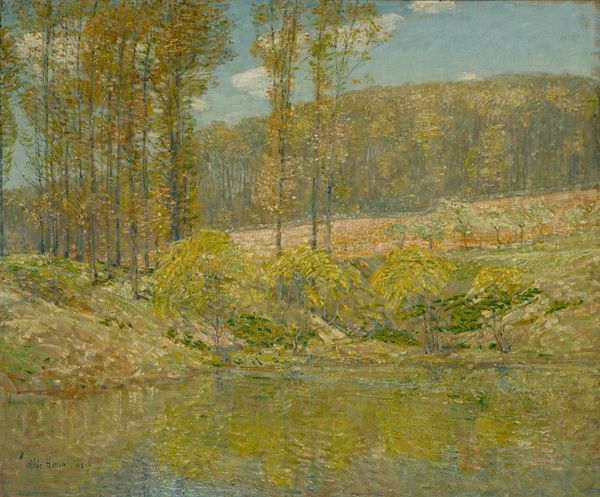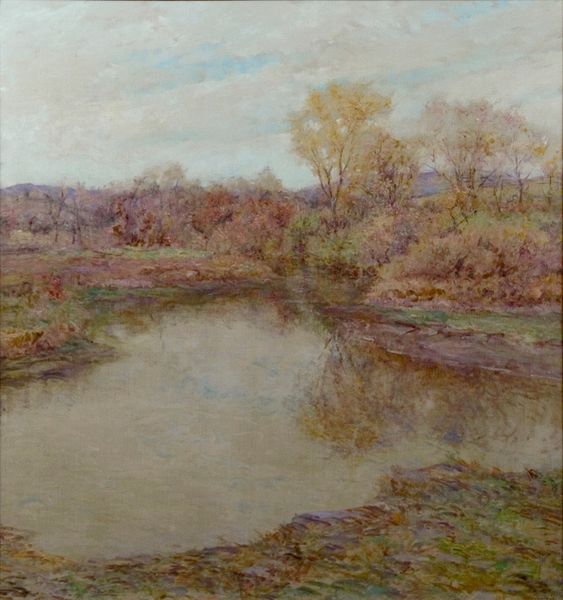
Copyright: Vitold Byalynitsky-Birulya,Fair Use
Curator: Immediately, the somber atmosphere arrests me; a quiet solitude hangs in the air. Editor: That’s quite a fitting observation, setting the stage for "Bystraya Rechka" (or "Fast River") painted in 1908 by Vitold Byalynitsky-Birulya. Curator: Note the structural role of the bare trees. They act as vertical anchors, a kind of arboreal colonnade framing the central subject. Editor: It evokes a powerful connection to Russian folklore. The river often symbolizes the passage of time, and in many tales, acts as a boundary between worlds. The reflections add an almost ethereal quality, suggesting hidden depths and alternate realities. Curator: The painting’s visual language intrigues. The application of paint displays an almost scientific dissection of light, creating a palpable texture. Look how the variations in color on the water’s surface give rise to complex refractions that almost abstract the scene. Editor: I perceive this remote village reflected in the water as mirroring a nostalgic vision of pre-industrial Russia—a connection to ancestral ways threatened by modernization. The muted palette adds to a sense of yearning for the past. Curator: However, that yearning could stem simply from a sophisticated control of atmospheric perspective; the structures in the distance fade in color saturation and clarity, giving the artwork depth, anchoring the viewing point firmly in the material realm. The brushwork on the other hand dissolves spatial certainty… Editor: Perhaps this artist wants to convey that both realities exist— the material and the intangible. It's a liminal space. Curator: Indeed, it all makes for quite the formal composition, something that will stay with me. Editor: For me, the symbols evoke a story beyond what is immediately visible, touching upon something universal and profoundly human.
Comments
No comments
Be the first to comment and join the conversation on the ultimate creative platform.
